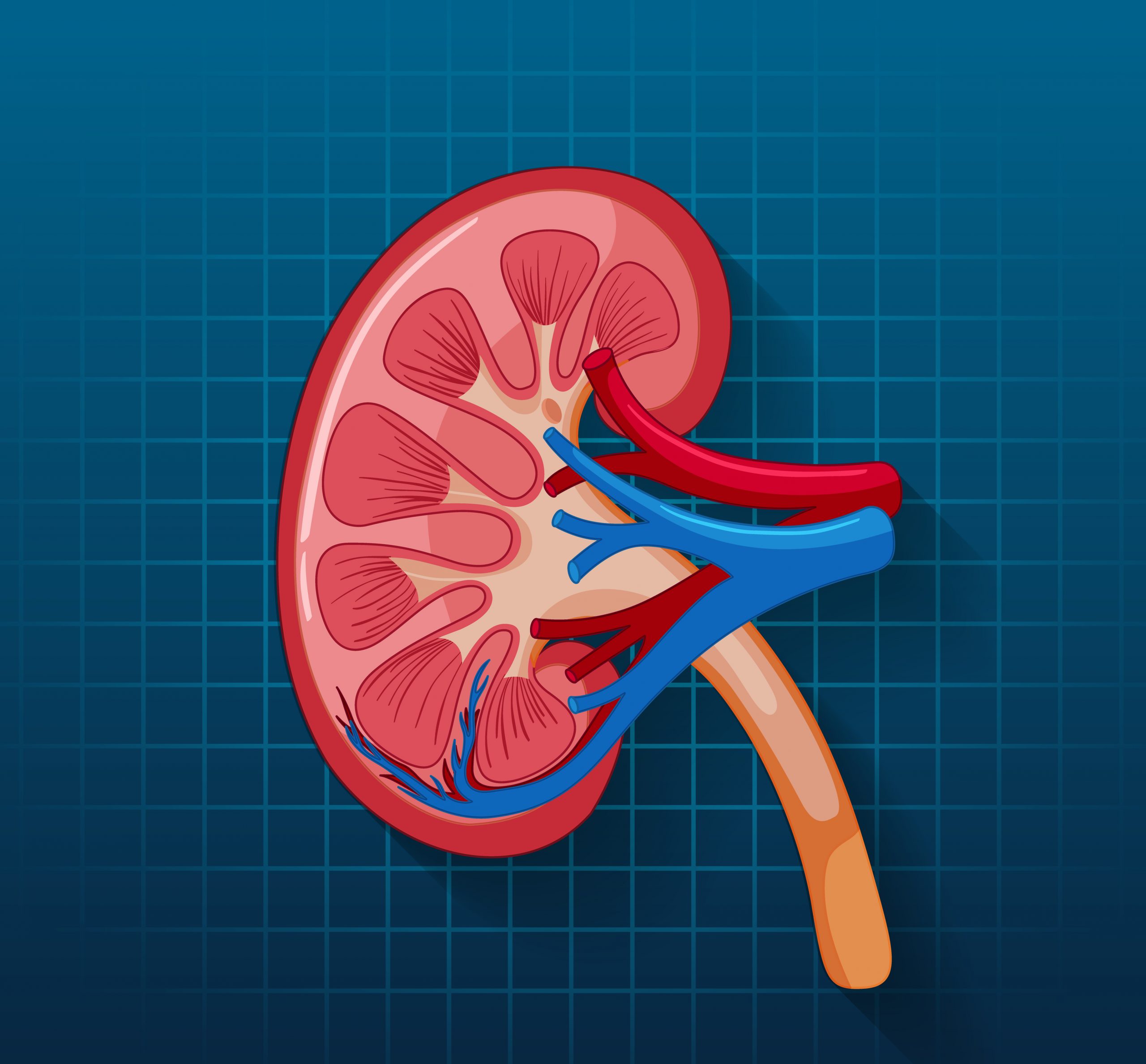

According to new research, new insights into a protein that causes damage in the kidneys and hearts could lead to new therapeutic options for chronic kidney disease.
Scarring in the kidneys and hearts was shown to be triggered by a protein called Indian Hedgehog (IHH), which is produced and secreted by a subpopulation of cells in elderly and injured kidneys.
Experts suggest more research is needed to investigate IHH as a possible target for medicines to treat chronic kidney disease (CKD), which affects 10% of the world’s population.
CKD is an umbrella term for any type of renal illness that lasts more than a few months. persons of any age can be affected, however older persons are more likely to have some form of CKD.
While CKD predominantly affects the kidneys, it is also a substantial risk factor for cardiovascular disease and death.
Progressive fibrosis—kidney scarring—is a common hallmark of all CKD, although the mechanism behind this relationship is unknown.
A team from the University of Edinburgh discovered a group of epithelial cells—tissue-forming cells—that produce IHH and are exclusively seen in elderly or wounded mice kidneys.
They discovered that when stimulated by the protein TNF, a well-known cause of inflammation, these cells generated IHH.
The scientists discovered that inhibiting the activities of TNF or IHH in mice models of renal scarring reduced scar development and preserved kidney function. Scarring in the heart was reduced to normal levels as well.
In humans, the researchers discovered that circulating IHH levels were considerably higher in CKD patients. Patients with cardiovascular disease had higher levels of IHH than those who did not.
The findings raise the possibility that inhibiting the TNF/IHH signaling pathway could ameliorate both kidney and cardiac fibrosis, which is the major cause of morbidity and mortality in CKD patients.
The findings have been published in the journal Science Translational Medicine.
Dr. David Ferenbach, MRC Senior Clinical Fellow at the University of Edinburgh and the senior author of this study, said, “There is a major unmet need for better treatments to halt the progressive kidney scarring and cardiovascular problems which affect so many patients with CKD. I’m excited at the potential of this work, and the new insights to be gained into the role of IHH as a major driver of multi-organ fibrosis, which we hope can be a first step on the road towards better treatments for patients.”
more recommended stories
 Nanoplastics in Brain Tissue and Neurological Risk
Nanoplastics in Brain Tissue and Neurological RiskKey Takeaways for HCPs Nanoplastics are.
 AI Predicts Chronic GVHD Risk After Stem Cell Transplant
AI Predicts Chronic GVHD Risk After Stem Cell TransplantKey Takeaways A new AI-driven tool,.
 Red Meat Consumption Linked to Higher Diabetes Odds
Red Meat Consumption Linked to Higher Diabetes OddsKey Takeaways Higher intake of total,.
 Pediatric Crohn’s Disease Microbial Signature Identified
Pediatric Crohn’s Disease Microbial Signature IdentifiedKey Points at a Glance NYU.
 Nanovaccine Design Boosts Immune Attack on HPV Tumors
Nanovaccine Design Boosts Immune Attack on HPV TumorsKey Highlights Reconfiguring peptide orientation significantly.
 High-Fat Diets Cause Damage to Metabolic Health
High-Fat Diets Cause Damage to Metabolic HealthKey Points Takeaways High-fat and ketogenic.
 Acute Ischemic Stroke: New Evidence for Neuroprotection
Acute Ischemic Stroke: New Evidence for NeuroprotectionKey Highlights A Phase III clinical.
 Statins Rarely Cause Side Effects, Large Trials Show
Statins Rarely Cause Side Effects, Large Trials ShowKey Points at a Glance Large.
 Anxiety Reduction and Emotional Support on Social Media
Anxiety Reduction and Emotional Support on Social MediaKey Summary Anxiety commonly begins in.
 Liquid Biopsy Measures Epigenetic Instability in Cancer
Liquid Biopsy Measures Epigenetic Instability in CancerKey Takeaways Johns Hopkins researchers developed.

Leave a Comment